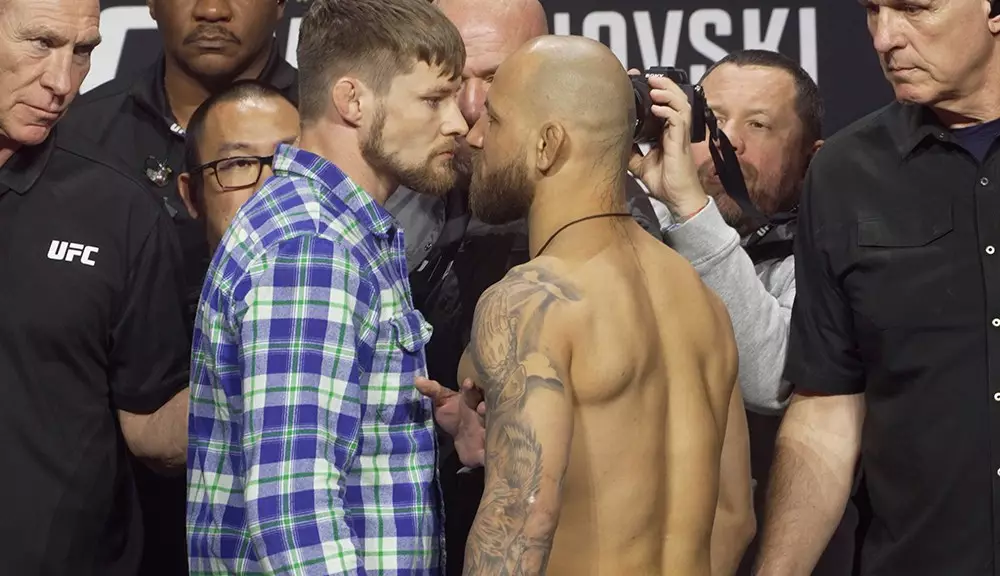Bryce Mitchell’s trajectory in the UFC illustrates the complexities of professional sports where personal ideologies and athletic prowess often collide. With a record of 17-2 in MMA and 8-2 in the UFC, the featherweight fighter finds himself not just facing opponents in the octagon but also navigating a treacherous landscape laden with public scrutiny. His upcoming battle against Jean Silva, scheduled for April 12 at Miami’s Kaseya Center, promises to be more than a simple clash of physical skills; it is shaping up to be a pivotal moment for his image and career.
Mitchell, once celebrated for his persona and fighting style, recently faced backlash due to controversial remarks praising Adolf Hitler. Such statements reflect a profound disconnect that many fans have experienced with him, prompting widespread condemnation and even inciting a wave of disdain during public appearances. The vitriolic “F*ck Bryce Mitchell” chant ignited by Silva at a press conference is emblematic of how swiftly public sentiment can shift, leaving an athlete reeling from the repercussions of their words.
Pressure in the Spotlight: Adversity and Resolve
Despite the swirling chaos around him, Mitchell professes a remarkable resilience. He embraces the pressure, articulating a clear focus on his imminent bout against Silva, whom he dismissively refers to as a “heathen.” This rhetoric signals not just a physical confrontation but also an ideological battle, where Mitchell frames the conflict in terms of spiritual warfare. His refusal to bend under public scrutiny illustrates a complex persona that oscillates between bravado and vulnerability.
Furthermore, Mitchell’s self-categorization hints at an internal struggle. After the tumultuous press conference, he disclosed unsettling experiences, including nightmares that left him grappling with his psyche. The suggestion that Silva is spiritually influenced accentuates Mitchell’s perception of the fight as not merely athletic but existential. It seems clear that he attributes the animosity directed toward him as a spiritual affront, intensifying the seriousness with which he views the competition.
The Clash of Ideologies: Not Just a Fight
The confrontation between Mitchell and Silva is more than a contest of skill; it represents a collision of vastly opposing ideologies and narratives. Silva’s ascendancy in the UFC has benefitted from the mounting animosity against Mitchell, positioning him as a formidable challenger with a moral high ground in the eyes of fans. The dynamics of their rivalry extend beyond the physical, engaging larger themes of belief, conviction, and the consequences of public discourse.
In calling out Silva’s alleged possession, Mitchell grapples openly with the metaphysical implications of their clash, raising questions about the nature of villainy in modern society. His assertion that “anything other than Jesus Christ is evil” invites scrutiny into his belief system, reflecting a fervent adherence that some may find unsettling. The insinuation that he occupies the moral high ground, while simultaneously making remarks that alienate many, underscores the contradictions inherent in his views.
The upcoming fight is not just a test of strength or technique for Mitchell; it is a moment where wrestling with his ideology and public persona takes center stage. As fans prepare for the spectacle of UFC 314, they are reminded that the journeys of fighters like Mitchell cannot be encapsulated solely by their records or fighting styles. Instead, it is the intersection of personal beliefs, public perception, and athleticism that will ultimately define their legacies.

